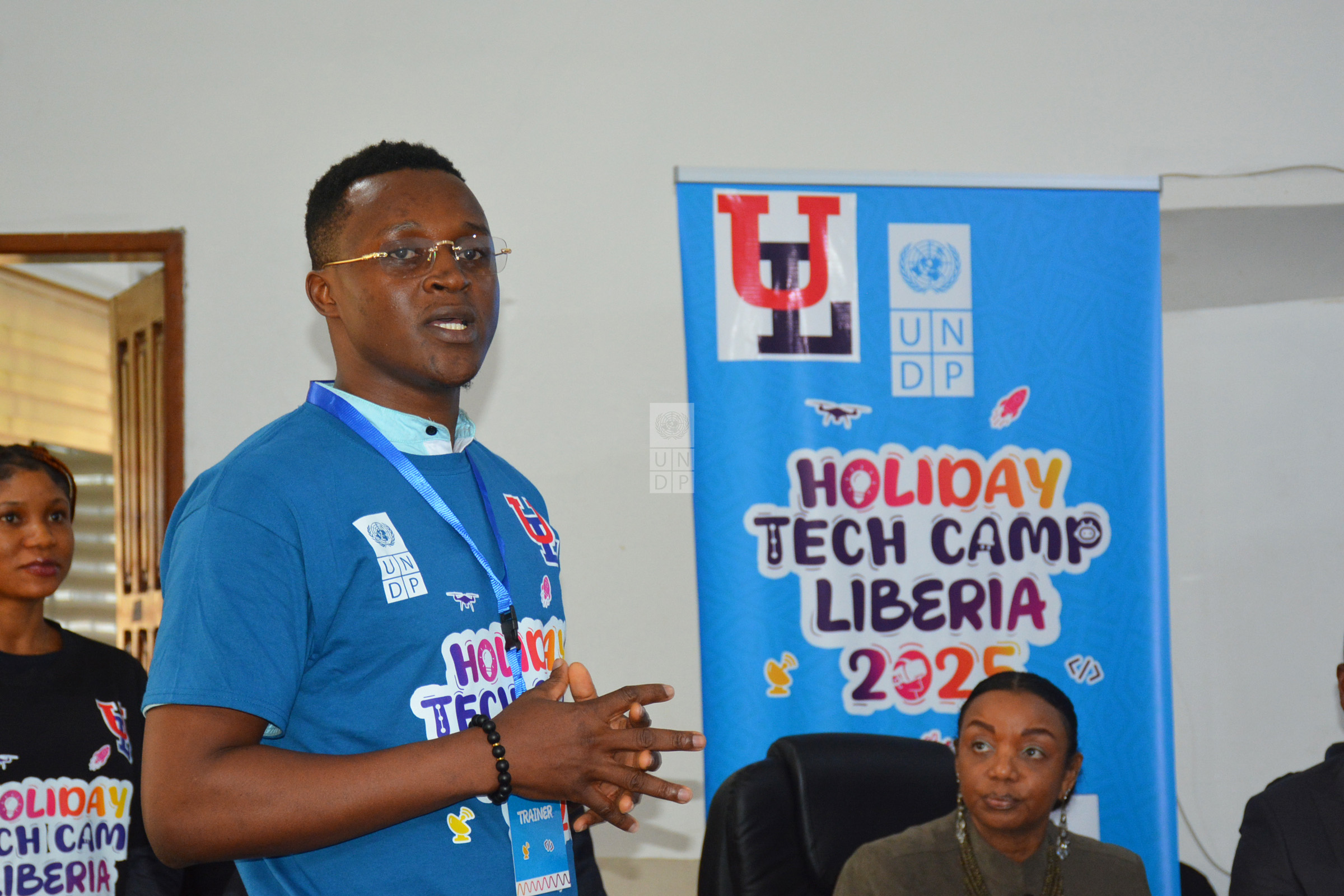
A groundbreaking, month-long Holiday Tech Camp has opened at the University of Liberia’s Fendall Campus, designed to ignite innovation among children and teenagers and position the country’s youth at the forefront of emerging technologies.
Running from July 16 to August 16, 2025, the program is hosted at the University Innovation Pod (UniPod) on the campus’s scenic Lake View site. Open to children aged 7 to 17 from primary, elementary, and secondary schools across Liberia, the camp represents the first initiative of its kind in the nation, offering immersive training in science, technology, and innovation.
Jointly organized by UNDP Liberia and the University of Liberia, the camp aims to equip young Liberians with practical skills and the confidence to embrace the fast-changing digital economy.
During a visit to the camp, UNDP Resident Representative Aliou Dia encouraged participants to dream without limits. “Before a dream becomes a reality, you must first imagine it,” Dia said, referencing global technology figures like Elon Musk and Mark Zuckerberg as examples of where determination and vision can lead. He praised the University of Liberia for partnering on the initiative and confirmed that, while this pilot program is hosted in Montserrado County, plans are underway to extend it to all counties in the coming years.
The campers, just one week into the program, welcomed the UNDP delegation and university officials with excitement, expressing gratitude and pride in the skills they were beginning to develop. Many shared that the program was already transforming how they viewed technology and their future aspirations.
Dr. Agnes Reeves Taylor, Vice President for Academic Affairs at the University of Liberia, echoed Dia’s sentiments and urged the students to embrace persistence. “Be persistent. Do it over and over until you succeed,” she told the young innovators, reminding them that mistakes are vital learning tools.
The camp, facilitated by the tech firm Nervtek and its CEO Nzometiah Nervis, hosts 60 students—36 girls and 24 boys. Nervis noted that the initiative began in Cameroon in 2020 with just nine students and has since grown to train about 90 young people annually, with Liberia now joining its expanding regional footprint.



